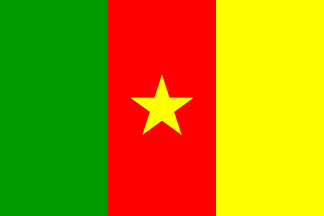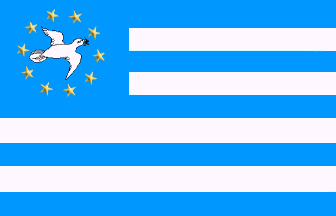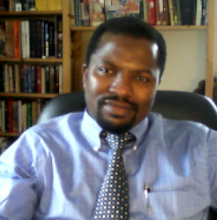
Cameroon, officially known as The Republic of Cameroon is one of many African countries. She is situated at the 'armpit' of Africa, that is, between West and Central Africa. The general conception about her is that she is Africa in miniature because nearly everything found in all parts Africa are found in Cameroon. With a landmass that stretches from the Equatorial rainforest, through the savannah grass fields to the semi-arid northernmost tip; Cameroon is blessed with an abundant biodiversity. To properly ride through Cameroon with speed and accuracy, it is necessary to follow some signposts.
History: The first Europeans that landed at the shores of Cameroon were the Portuguese in the early 1470s and because of the abundance of crayfish at the Wouri estuary, she was erroneously named Rio dos Cameroes. This name was used on Portuguese maps to identify her. It was later changed to Kamerun when the Germans colonized her following the partition of Africa in 1884, and then to Cameroun and Cameroon, when the French and the British defeated the Germans and took over control of the country after World War I. In sharing their spoils of war, three quarters of Cameroon went to France and one quarter to Britain. This detail is important if one is to understand the currents that have shaped the geo-political map of Cameroon up till today. The French section known as Francophone or East Cameroon, gained her independence from the French on the 1st of January 1960 while the British section known as Anglophone or Southern Cameroon gained her independence after a plebiscite on 11th February 1961 during which the citizens of this territory voted in a plebiscite to reunify with the already independent La Republique du Cameroun as the French territory was called after independence. This unity, forged by the political climate of the 1960s which is best summed up in the words of Harold Macmillan the then British PM: The wind of change is blowing through this continent. Whether we like it or not, this growth of national consciousness is a political fact. The ‘new’ Cameroon enjoyed the joys that every young marriage is exposed to but this apparently ended with the honeymoon.
Geography: The size of Cameroon is 183,500sq. miles; maximum north-south length, 700miles; east-west, 450miles according to the Area Handbook for the United Republic of Cameroon (1974). The region to the south is made of coastal plains with its tropical rainforest and climate. This area is home to the rare species of monkeys and chimps found nowhere in the world. It is important to note here that this area constitutes part of the Congo basin that was not affected by the Ice Age. To the west, the main features are the mountains with the highest peak being Mount Cameroon, which is the highest in West Africa. There is also a plateau that rises up to the grass field. The flora and fauna changes as one moves across the country. The northern part is home to the Waza Park that protects a lot of wild life like elephants, lions, giraffes, hippos, rhinos, buffaloes, zebras, pythons etc. In the south, the rich array of birds, botanical gardens, zoos and parks with the beautiful sandy beaches are a come and see.
Cameroon and her neighbours:

The People: Cameroon is made up of more than 200 ethnic groups and languages. The north is predominantly Fulani whose main religion is Islam while the South is made up of diverse groups with Christianity being the main form of worship. At the heart of the Congo Basin are found the Pygmies (a race of stunted people) who are still living in a semi-perfect state with nature. Cameroonians are further broken up to two regions: the English speaking Cameroonians to the West and the French speaking Cameroonians to the East. Whether from the East or the West, Cameroonians are known to be very hospital, sociable and happy-go-lucky people. With her food self-sufficiency, the people have a tendency to live their lives according to the gifts that nature or providence have provided.
Culture: Indigenous cultures, it can be said, have been affected by long periods of colonialism especially with the French infamous policy of assimilation. In spite of this, there still remain a rich cultural diversity that is enjoyed by the various tribes and regions. What can be called Cameroonian culture probably is what the union of English and French regions have produced, that is, the creation the only bilingual state in Africa. The people’s love for bon vie is seen in the flourishing of the music and showbiz industries that attract artists all over the continent. If there is anything that has projected Cameroon beyond continental boundaries also, it is her cultivation of the culture of football: what Americans call soccer. In times of football everyone forgets tribal, regional, linguistic and political differences and rise up as one people, one nation with one soul mate: football! The political machinery, economic, social and even spiritual revivals are halted when the national team is involved in an important match at home or abroad. Her love for football has been used by the existing political structure as opium for the masses.
Socio-Economic: The currency in use here is the franc. One US dollar is equal to more than five hundred francs. This currency is used by a number of countries in central Africa. It is a derivation of the French Franc. The economic capital is Douala. Cameroon is a third world country and of recent the politicians are making the world to think that she should benefit from the Heavily Indebted Poor Countries Initiative. This is a program that would have debts cancelled so that the money can be ploughed back to solve economic problems. It is saddening to reflect on the socio-economic situation of Cameroon. To imagine that a country with rich human and economic potentials has been abandoned to lie in a state of ruins makes conscientious Cameroonians sick. Illiteracy is still very high with the north being the hardest hit. Here most girls are either married off as young as 13 or take care of their parents’ herds of cattle, goats, sheep, etc. With the low salaries of teachers, state schools and colleges are poorly staffed. Those who successfully go through the universities have no jobs. The result is wide spread unemployment that has brought about an increase in crime wave. People in the rural areas constitute more that sixty percent of the population and most of them are living below the poverty line. There is no electricity, pipe-born water, and no good roads for them to sell some of their products, no money to pay fees for their children to attend elementary schools and health services are far apart. Many households live on less than a dollar a day.
The question that arises here is what about the many natural resources? What about the oil deposits and the other minerals? Although oil is refined at home, imported gas from Nigeria is cheaper than that produced in Cameroon. She could even afford to abandon the rich oil filled Bakassi Peninsula and remembered it only when the oil hungry Nigerians invaded the place and started tapping out oil!
Another factor, though equally shameful is the institutionalized corruption. Not long ago Cameroon topped the world chart for corruption twice and is currently still among the top fifteen according to Amnesty International. It is disheartening to note that a house that is built on corruption cannot fight this ill because that will initiate its own demise. In the last elections, numerous observatory bodies a lot of irregularities. The American Embassy also issued a statement to this effect but nothing was done about it. The head of state uses government ministers and other administrative arms to rig elections he has no moral control over them. He is known to have large assets stored away in banks abroad, owns a hospital in Germany, and Cameroonian oil industry is his special reserve. The General Manager of this sector once said on National Television, when asked what was happening to the revenue from oil that issues of oil were too complex for Cameroonians and only he and the head of state could understand them! When top officials are out rightly caught in corruption, there are not jailed but only reappointed to other functions. This has led to a situation in which personal interest comes first and patriotism sacrificed on the altar of egocentricity and avarice.
Political: From the last discussion of the socio-economic situation of Cameroon, it is clear that there is something wrong with her and her politicians. The one good thing about Cameroonians is that they are very religious and prone to complacency. There is cheap food, even if is carbohydrates, and liquor both locally brewed or churned out by the two major breweries Le Brasseries du Cameroun and Guinness Cameroon S.A. Those who cannot afford, beer can at least afford the traditional stuff known as kwog, odontol, shot, etc, depending on the part of the country one hails from. It is over this that the state of affairs is discussed and the conclusion is always that things will not remain like this forever. Probably another saviour will come to bring them out of Egypt. At first there was no freedom of the press. Censorship was rife and freedom of expression and others, a far-fetched idea. Now, with the multiplicity of parties, and an apparent freedom of the press, nothing is changing. Yeah, there’s democracy even with “commandement operationelle” (a government program in which arm robbers and persons who had committed crimes against the state were brutally eliminated without trial). After all, elections are held and the same person gets elected all the times since 1982. There is democracy even when the head of state is the commander in chief of the armed forces, head of the magesterium, appoints those who conduct elections and is still ruling by decrees through a parliament he controls. Cameroonians enjoy some peace in the face of all these and are happy for it.
The Present Trend: The Cameroonian past has sort of caught up her. On the 11th of February 1961, two states came together to co-exist in peace and harmony but that has failed. The first indication of that failure is the gradual and systematic subjugation of the Southern Cameroonians by the majority Francophones. Then came the change of name from the Federal Republic of Cameroon to United Republic in 1972, and to Republic of Cameroon in 1984. It is worth noting that the present name Republic of Cameroon is the name of the former East Cameroon, that is, before the reunification of the two states. Thus by reverting to this name, the East Cameroonians in effect concluded, in their thinking, the destruction and burial of the Southern Cameroonian identity.
Another trend in this direction is the conscious impoverishment of the Southern Cameroonians. Since reunification, the Southern Cameroonians for a short time enjoyed limited grants in rural and regional development. This gradually rolled to a halt in the early 80s when another Francophone president announced that there was economic crisis. It turned out that economic crisis was only for Southern Cameroonians as her roads, infrastructure and people were abandoned to rot. One thing that was not abandoned though, was the oil. Oil continued to be drilled out of her rich coastal waters, refined, hauled for storage, in the Eastern region and then brought back to be sold to Southern Cameroonians at increased prices. Most often, her cities are grounded for lack of fuel! It is ironical that one of the conditions that Nigeria gave as part of negotiations to hand back Bakassi to the rest of Cameroon was that the Francophone government should pay more attention to the development of this region! With roads full of potholes, dusty during dry seasons and very muddy and impassable during the long rainy season, this region looks like a creation in the movies for special effect, to illustrate poverty and misery. The situation of late has been aggravated by the sale of state-owned agro-industrial complexes found in this part of the country. Case in point is the sale of the Tea Estates through a shoddy deal by government ministers that have reduced most of the people who relied on this to near starvation. The organization of mass street demonstrations have met with nonchalance and at best half-hearted efforts by government ministers to talk the people back into silence. When this fails, troops are sent out to disperse the people with life bullets and grenades.
In the face of impending doom, what has come to give hope to the Southern Cameroonians is the formation of the Southern Cameroon National Council. This started off as a pressure group but La Republique du Cameroun, in her characteristic manner banned the movement. This political organization has since its inception in the early 90s gained grounds and recognition from the Southern Cameroonians as the only voice that is out to write the error of history: the reunification of the two Cameroons. Many Southern Cameroonians are in jail for expressing their views in the light of the ongoing economic stagnation and gross discrimination of this region. The call of the Southern Cameroon National Council has now changed and what is eminent is total independence from La Republique du Cameroun. Diplomatic as well as other maneuvers are being sought to achieve this objective. The name of the emerging state is Ambazonia (The Federal Republic of Southern Cameroon).
The following is its map:

Most of the citizens of Ambazonia live in fear of being attacked and brutalized by armed thugs of the French regime known as gendarmes or of being hauled and thrown in the smelly airtight jails without any provocation. It is this state of affairs, coupled with the other problems like malaria, AIDS, cholera, dysentery, etc. that have raised the death toll in the Southern Cameroonians. A leading critic of the Cameroonian political structure, His Eminence Christian Cardinal Tumi once said that when people sleep hungry, lose their children because of no drugs, are disgraced by the inability of pay fees or buy exercise books for their children to go to school, have no jobs because they cannot speak French, are perpetually slapped on the face by a system that treats them like foreigners in a country that they think is their own, they are like a time bomb that will explode when the time is up.
There is no doubt that the peace Cameroonians enjoy is found in few places in Africa. Probably this is one of her many blessings. With this fairly stable political climate, international investors are streaming in. The Americans have recently gone in to exploit the energy, the Chinese, everything from poultry to frying and selling doughnuts along the streets and the French are making a final bid to take control of every other thing apart from the exploitation of mineral resources, even cleaning the streets of garbage. I hope that La Republique du Cameroun will not be asking for any more bribes to let go of the Southern Cameroonians because they have taken enough already.
CAMEROON IS A GOOD RESOURCE TO THOSE INVOLVED IN INTERNATIONAL STUDIES, GEOGRAPHY, ECOLOGY, ETC. VISIT CAMEROON AND YOU WOULD HAVE GONE TO ALL OF AFRICA.
THE FOOD, THE LIFE, THE SIGHTS AND SOUNDS REMAIN A PLEASANT SURPRISE FOR MANY A TOURIST.






